GENEALOGY OF THE SOUTH INDIAN DEITIES
For the first time, the work Genealogy of the South Indian Deities of the first Protestant missionary to India, Bartholomus Ziegenbalg (16821719), is made accessible to an English readership. Originally published in 1713, the text reveals Ziegenbalgs ethos in the emerging European Enlightenment and his willingness to learn from the South Indians. It contains the original voices of knowledgeable South Indians from various religious backgrounds and presents South India in a vivid, direct and unfiltered way. In this volume, Daniel Jeyaraj edits and presents the German original in an English translation. This is followed by a detailed textual analysis, a glossary and an appendix. This book is invaluable for anyone interested in reliable information about the interactions of Europeans with Hindu and  religion and culture.
religion and culture.
Daniel Jeyaraj, is Judson-DeFrietas Associate Professor of World Christianity at Andover Newton Theological School in Newton Center, Massachusetts, USA. He is an Indian theologian with a profound interest in the intercultural relationship of Christian faith, the value of cross-cultural learning and interdisciplinary teaching and research. He is a leading authority on the study of the Tranquebar Mission and the emergence of Protestant churches in eighteenth-century India.
RoutledgeCurzon Studies in Asian Religion
Editorial Advisory Board
Nick Allen, University of Oxford
Catherine Despeux, INALCO, Paris
Chris Minkowski, Cornell University
Fabio Rambelli, Sapporo University, Japan
Andrew Rippin, University of Victoria
RoutledgeCurzon publishes a Series specifically devoted to Asian Religion, considered from a variety of perspectives: those of theology, philosophy, anthropology, sociology, history, politics and literature. The primary objects of study will be all the religious traditions of the Indian subcontinent, Tibet, China, Japan, South-East Asia, Central Asia, and the Near and Middle East.
The methodology used in the works published in the Series is either comparative or one focused on (a feature of) a specific tradition. The level of readership ranges from undergraduates to specialist scholars. The type of book varies from the introductory textbook to the scholarly monograph.
TRADITION AND LIBERATION
The Hindu tradition in the Indian Womens Movement
Catherine A.Robinson
SHINTO IN HISTORY
Ways of the Kami
Edited by John Breen and Mark Teeuwen
BEYOND PERSONAL IDENTITY
Dogen, Nishida, and a phenomenology of no-self
Gereon Kopf
KRSNA: LORD OR AVATARA?
The relationship between Krsna and Visnu
Freda Matchett
THE BIOGRAPHICAL TRADITION IN SUFISM
The Tabaqat genre from al-Sulami to Jami
Jawid A.Mojadeddi
RELIGIOUS GIVING AND THE INVENTION OF KARMA IN THERAVADA BUDDHISM
James Egge
THE DIVINE AND THE DEMONIC
Supernatural affliction and its treatment in North India
Graham Dwyer
CHAN BUDDHISM IN RITUAL CONTEXT
Bernard Faure
BUDDHIST HAGIOGRAPHY IN EARLY JAPAN
Images of compassion in the Gyki tradition
Jonathan Morris Augustine
GENEALOGY OF THE SOUTH INDIAN DEITIES
An English translation of Bartholomus Ziegenbalgs original
German manuscript with a textual analysis and glossary
Daniel Jeyaraj
GENEALOGY OF THE SOUTH INDIAN DEITIES
An English translation of Bartholomus Ziegenbalgs original German manuscript with a textual analysis and glossary
Daniel Jeyaraj

First published in German, 2003
By Verlag der Franckesche Stiftungen
This edition published 2005
by RoutledgeCurzon
2 Park Square, Milton Park, Abingdon, Oxon OX14 4RN
Simultaneously published in the USA and Canada
by RoutledgeCurzon
270 Madison Ave, New York, NY 10016
This edition published in the Taylor & Francis e-Library, 2010.
To purchase your own copy of this or any of Taylor & Francis or Routledges collection of thousands of eBooks please go to www.eBookstore.tandf.co.uk.
RoutledgeCurzon is an imprint of the Taylor & Francis Group
2005 Daniel Jeyaraj
All rights reserved. No part of this book may be reprinted or reproduced or utilised in any form or by any electronic, mechanical, or other means, now known or hereafter invented, including photocopying and recording, or in any information storage or retrieval system, without permission in writing from the publishers.
British Library Cataloguing in Publication Data
A catalogue record for this book is available from the British Library
Library of Congress Cataloging in Publication Data
A catalog record for this book has been requested
ISBN 0-203-49316-8 Master e-book ISBN
ISBN 0-415-34438-7 Print ISBN
To
Princeton Theological Seminary
Princeton, NJ-08540 USA
with deep gratitude for appointing me
John A.Mackay Professor for World Christianity (20012002), and their first Research Professor (20022003)
PREFACE
Cross-cultural learning is vital for a healthy pluralistic society because it tells how human beings create, codify, preserve, pass on, receive, interpret and recreate interrelated symbols and functional meaning in their respective social, political, economic and religious life setting. Cross-cultural learning requires sensitivity, respect and acceptance of the lifestyle of others and their socio-cultural system that protects and fosters human life and does not endorse violence and injustice of any kind.
After my first encounter with Christian faith (around 1980) I was hearing the allegation that Christian missionaries from Europe were damaging the Indian cultural fabric. I wanted to know the legitimacy of such contentions and decided to study the cultural contact among the first Protestant missionaries and South Indians during the early eighteenth century. During the course of my research I have recovered numerous manuscriptswritten by the Tamils and the European missionaries in Tamil, German and English languages. These manuscripts are living testimonies of the socio-cultural life of their period. Of them, B. Ziegenbalgs original German manuscript Genealogy of the South Indian Deities (1713) is particularly significant. It is an intelligent, honest and fascinating witness to the religious and cultural interaction between the German Pietist Ziegenbalg and the Tamils in the pre-colonial context. It deals with the values, modes and organizations of the religious behavior of the South Indians as seen, documented and interpreted by Ziegenbalg. His study constitutes a superb example of not only representing a European view about the South Indians, but also of preserving memories, voices and reflections of Tamils about their local traditions.
Numerous persons have helped me complete this study. I thank Dr. Thomas Gillespie, the President of Princeton Theological Seminary (PTS), for appointing me the John A.Mackay Professor for World Christianity (20012002). Besides regular teaching assignment, I had time to continue my research. The cordial working atmosphere in the Department of Mission, Ecumenics and History of Religion (MEHR) has enriched me. I thank all my esteemed colleagues at the MEHR for their collegiality and support. I am especially grateful to Dr. Richard F.Young, Elmer K. and Ethel R.Timby Associate Professor of the History of Religions at PTS, for constructive criticism and advice. His knowledge of Sanskrit language and literature has helped me improve the glossary greatly. I am thankful to Dr. Thomas Gillespie and his administrative team for appointing me Research Professor (20022003) and thus enabling me to concentrate on my research. I remain grateful to Dr. Max Lynn Stackhouse, the Stephan Colwell Professor of Christian Ethics at PTS for the encouragement and insightful dialogues. I remain grateful to Dr. Thomas Mller-Bhalke, the Director of the Francke Foundations in Halle (Saale), Germany, for his gracious permission to base this English edition on original German version entitled

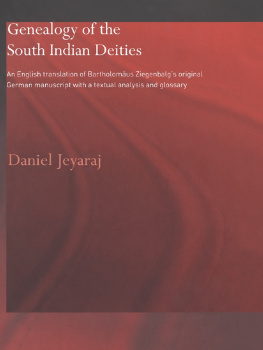

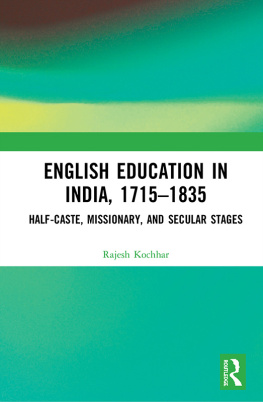
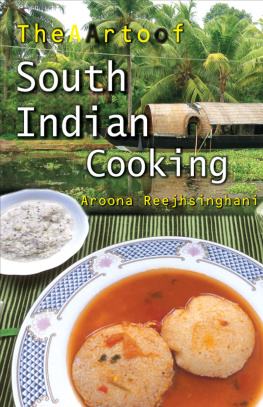
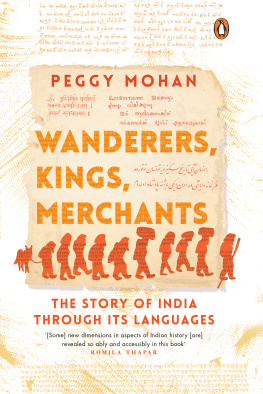
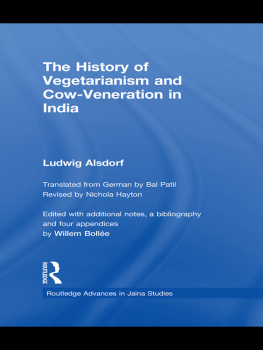
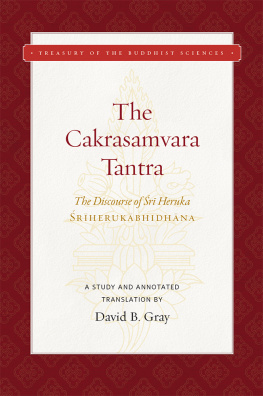

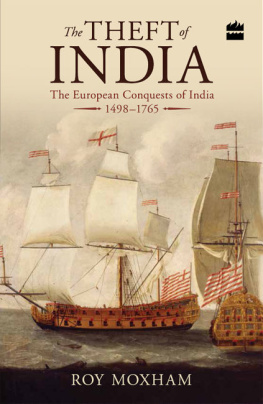
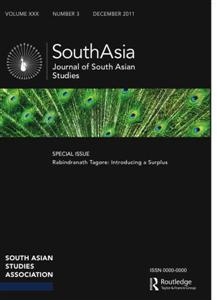

 religion and culture.
religion and culture.